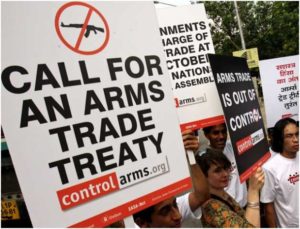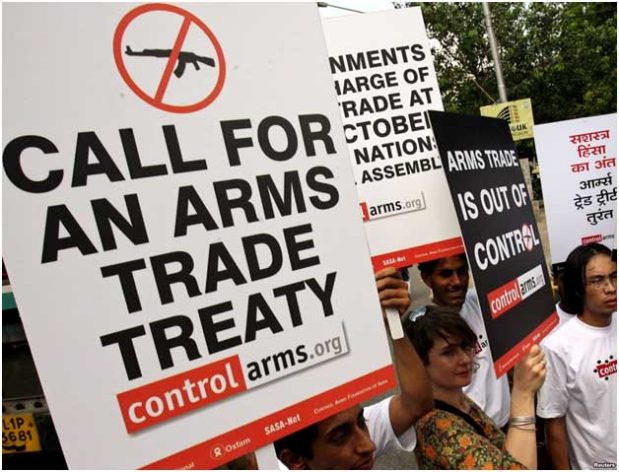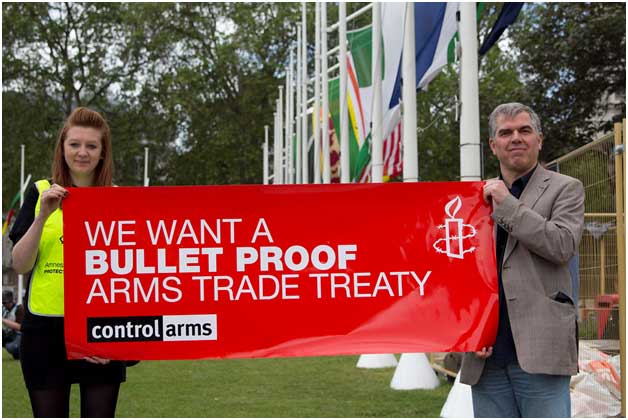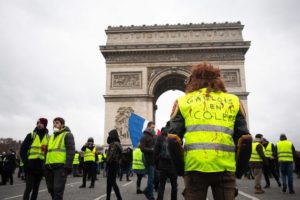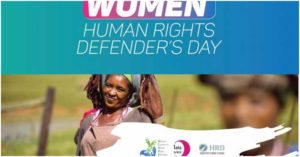
Civil Society, Editors’ Choice, Featured, Gender, Global, Global Geopolitics, Global Governance, Headlines, Human Rights, Population, TerraViva United Nations
Masana Ndinga-Kanga is Crisis Response Fund Lead with global civil society alliance, CIVICUS.
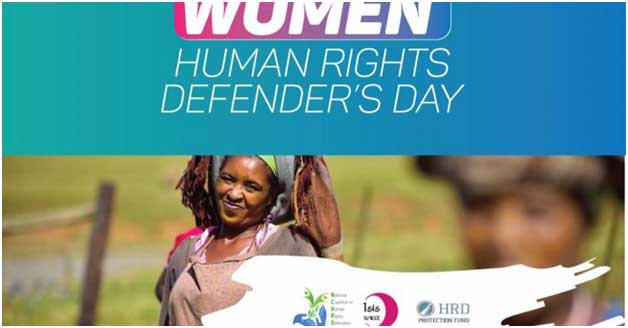
– Does the name Ihsan Al Fagiri ring a bell? How about Heba Omer or Adeela Al Zaebaq?
It’s likely that these names, among countless others, are not known to the average news consumer. But their tireless and dangerous work, however, has made news headlines as protests led to historic political change in Sudan.
To the communities of protesting women in Sudan, these names represent the valiant efforts to defy the authoritarianism of the Omar Al Bashir regime.
The sustained efforts of these women include mass mobilization, calling people to the streets of Sudan through ‘Zagrouda’ (the women’s chant) in response to rising costs of living amidst the country’s worst economic crisis.
These rallying calls of #SudanUprising, have been led by Sudanese women who are teachers, stay-at-home-mothers, doctors, students and lawyers. And yet, when President Al Bashir stepped down on April 11, the names of the women who spearheaded this political shift, were largely missing from the headlines.
This erasure is not uncommon. Women Human Rights Defenders (WHRDs) are often erased or slandered in efforts to intimidate them into quitting continuing their human rights work. In Egypt, Guatemala, Saudi Arabia, Uganda or the Philippines they are often called agents of international interests.
In Kenya, the United States and South Africa, their sexuality is called into question and they are harassed online. In China and the United Arab Emirates, they are detained for reporting or highlighting endemic levels of harassment. And yet, they refuse to be silenced.
These women are not alone at the interface of sustaining justice in sexual and reproductive health, environmental rights, economic accountability and conflict areas.
In spite of restrictions against them, WHRDs have campaigned boldly in the face of mounting opposition: #MeToo #MenAreTrash, #FreeSaudiWomen, #NiUnaMenos, #NotYourAsianSideKick, #SudanUprising and #AbortoLegalYa are just a few social campaigns that represent countless women at the coal face of systemic change for equality and justice. More and more WHRDs worldwide are working collectively to challenge structural injustices and promote the realisation of human rights and fundamental freedoms.
But there is a stark absence of knowledge on their work. Media reporting on the courageous work of women defenders tends to focus more on the challenges they face. Awareness of their restrictions is critical to the push for justice but equally important is knowledge about the work they do to sustain women’s rights globally.
Combined with the risks of ostracization and assault from relatives, community members and the state, WHRDs defy these risks to sustain social justice. Recognizing them only for their restrictions further contributes to the erasure they experience daily from state and others.
One way the narrative on WHRDs can shift is by focusing on the critical role they play in pushing forward a progressive agenda of change for all.
In Ireland last year, activists working in sexual and reproductive health and rights achieved a landslide referendum victory in which two thirds of voters chose to legalise abortion, after many years of pro-choice campaigning.
In the southern African kingdom of eSwatini, formerly known as Swaziland, the first ever Pride march was held last year in support of LGBTQI rights. LGBTQI groups in Fiji also scored the same first that year – the country’s inaugural Pride event, a victory of freedom of assembly for LGBTQI activists around the world.
The power of collective action was also on display in January when five million women formed a human chain across the southern Indian state of Kerala. The massive protest was organised in response to experiences of violence against women attempting to enter Kerala’s Sabarimala temple, a prominent Hindu pilgrimage site.
In Iran, a small women’s movement challenging the compulsory rule that requires women to fully cover their hair, has been developing. While in Colombia, activist Francia Marquez organised a 10-day march of some 80 women to protest against illegal mining on their ancestral land in the east of the country.
This activism is often thankless and dangerous work. Indeed, 2017 was the deadliest year on record for environmental women human rights defenders, with 200 environmental campaigners murdered.
WHRDs are at increasing risk of harassment not just from state actors, but also from multinational corporations, their communities and in some cases, their own families. International policy frameworks have tried to keep up with the heavy-handed crackdown from states on environmental WHRDs.
Last September, United Nations High Commissioner for Human Rights, Michelle Bachelet launched the For All Coalition to integrate human rights and gender equality throughout all major multilateral environmental agreements, including the Paris Agreement under the UN Framework Convention on Climate Change.
The Coalition is an important step in highlighting the ways in which climate change disproportionately affect WHRDs, and also recognises the role of local and indigenous communities of women in the realisation of environmental protection.
These policy gains are the first step in creating an enabling environment for WHRDs working in remote areas on land, indigenous rights and climate justice. They are often labelled as ‘anti-development’ for calling for accountable and transparent change.
In South Africa and Honduras, the gains of environmental women campaigners have been some international recognition of their work, but at high costs: for some, these costs sometimes include their lives. Since 2001, 47 human rights workers in the Philippines have been killed for their work of attempting to document environmental violations.
In order to take seriously the work of women human rights defenders, the mechanisms for protecting them have to begin to adapt to respond to their nuanced needs as women. They need to be sensitive to other dimensions that affect WHRDs such as sexual orientation, gender, race, class and indigenous status. Adequate institutional and policy support must be built on intersectional feminism which is consultative and responsive.
What will create a more favourable policy environment for women activists? That answer should include decriminalizing sexual and reproductive rights, for example, and removing restrictions on the registration of associations supporting WHRDs.
Governments should also conduct training and sensitisation programmes for law enforcement agencies, members of the judiciary and staff of national human rights institutions on the challenges faced by WHRD, and develop a national action plan for the protection of WHRDs.
To this day, resources do not reach WHRDs in remote areas and on the frontlines, and not because they are not applying! Gender-sensitive resourcing is critical to address the gap.
These suggestions are a smaller part of a larger need for systemic change but point to the need for consistent global activism to support women human rights defenders at all times – oftentimes before crises emerge.
The victory of Sudanese women, and the ensuing capture of the end of dictatorship this year, should give us pause to remember particularly the women who push on through layers of repression, risking all, to demand basic rights.

